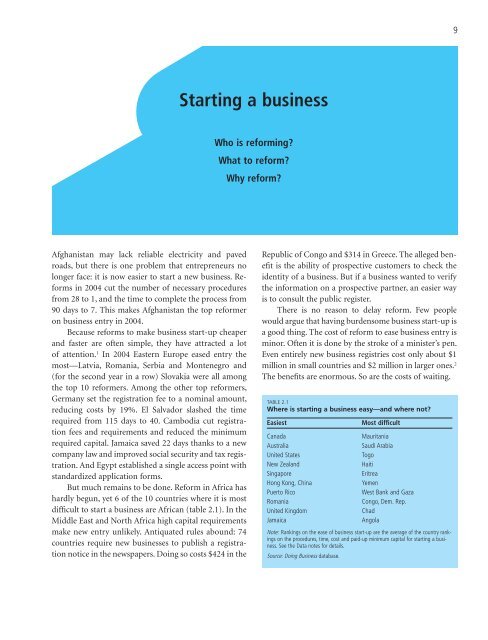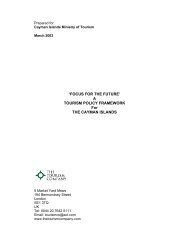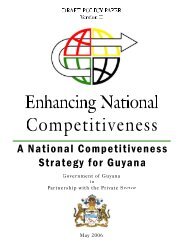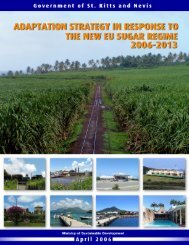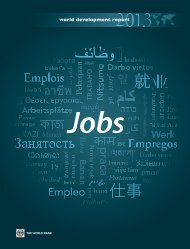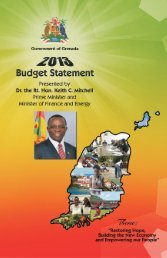Creating
Doing Business in 2006 -- Creating Jobs - Caribbean Elections
Doing Business in 2006 -- Creating Jobs - Caribbean Elections
You also want an ePaper? Increase the reach of your titles
YUMPU automatically turns print PDFs into web optimized ePapers that Google loves.
9<br />
Starting a business<br />
Who is reforming?<br />
What to reform?<br />
Why reform?<br />
Afghanistan may lack reliable electricity and paved<br />
roads, but there is one problem that entrepreneurs no<br />
longer face: it is now easier to start a new business. Reforms<br />
in 2004 cut the number of necessary procedures<br />
from 28 to 1, and the time to complete the process from<br />
90 days to 7. This makes Afghanistan the top reformer<br />
on business entry in 2004.<br />
Because reforms to make business start-up cheaper<br />
and faster are often simple, they have attracted a lot<br />
of attention. 1 In 2004 Eastern Europe eased entry the<br />
most—Latvia, Romania, Serbia and Montenegro and<br />
(for the second year in a row) Slovakia were all among<br />
the top 10 reformers. Among the other top reformers,<br />
Germany set the registration fee to a nominal amount,<br />
reducing costs by 19%. El Salvador slashed the time<br />
required from 115 days to 40. Cambodia cut registration<br />
fees and requirements and reduced the minimum<br />
required capital. Jamaica saved 22 days thanks to a new<br />
company law and improved social security and tax registration.<br />
And Egypt established a single access point with<br />
standardized application forms.<br />
But much remains to be done. Reform in Africa has<br />
hardly begun, yet 6 of the 10 countries where it is most<br />
difficult to start a business are African (table 2.1). In the<br />
Middle East and North Africa high capital requirements<br />
make new entry unlikely. Antiquated rules abound: 74<br />
countries require new businesses to publish a registration<br />
notice in the newspapers. Doing so costs $424 in the<br />
Republic of Congo and $314 in Greece. The alleged benefit<br />
is the ability of prospective customers to check the<br />
identity of a business. But if a business wanted to verify<br />
the information on a prospective partner, an easier way<br />
is to consult the public register.<br />
There is no reason to delay reform. Few people<br />
would argue that having burdensome business start-up is<br />
a good thing. The cost of reform to ease business entry is<br />
minor. Often it is done by the stroke of a minister’s pen.<br />
Even entirely new business registries cost only about $1<br />
million in small countries and $2 million in larger ones. 2<br />
The benefits are enormous. So are the costs of waiting.<br />
TABLE 2.1<br />
Where is starting a business easy—and where not?<br />
Easiest<br />
Canada<br />
Australia<br />
United States<br />
New Zealand<br />
Singapore<br />
Hong Kong, China<br />
Puerto Rico<br />
Romania<br />
United Kingdom<br />
Jamaica<br />
Most difficult<br />
Mauritania<br />
Saudi Arabia<br />
Togo<br />
Haiti<br />
Eritrea<br />
Yemen<br />
West Bank and Gaza<br />
Congo, Dem. Rep.<br />
Chad<br />
Angola<br />
Note: Rankings on the ease of business start-up are the average of the country rankings<br />
on the procedures, time, cost and paid-up minimum capital for starting a business.<br />
See the Data notes for details.<br />
Source: Doing Business database.


